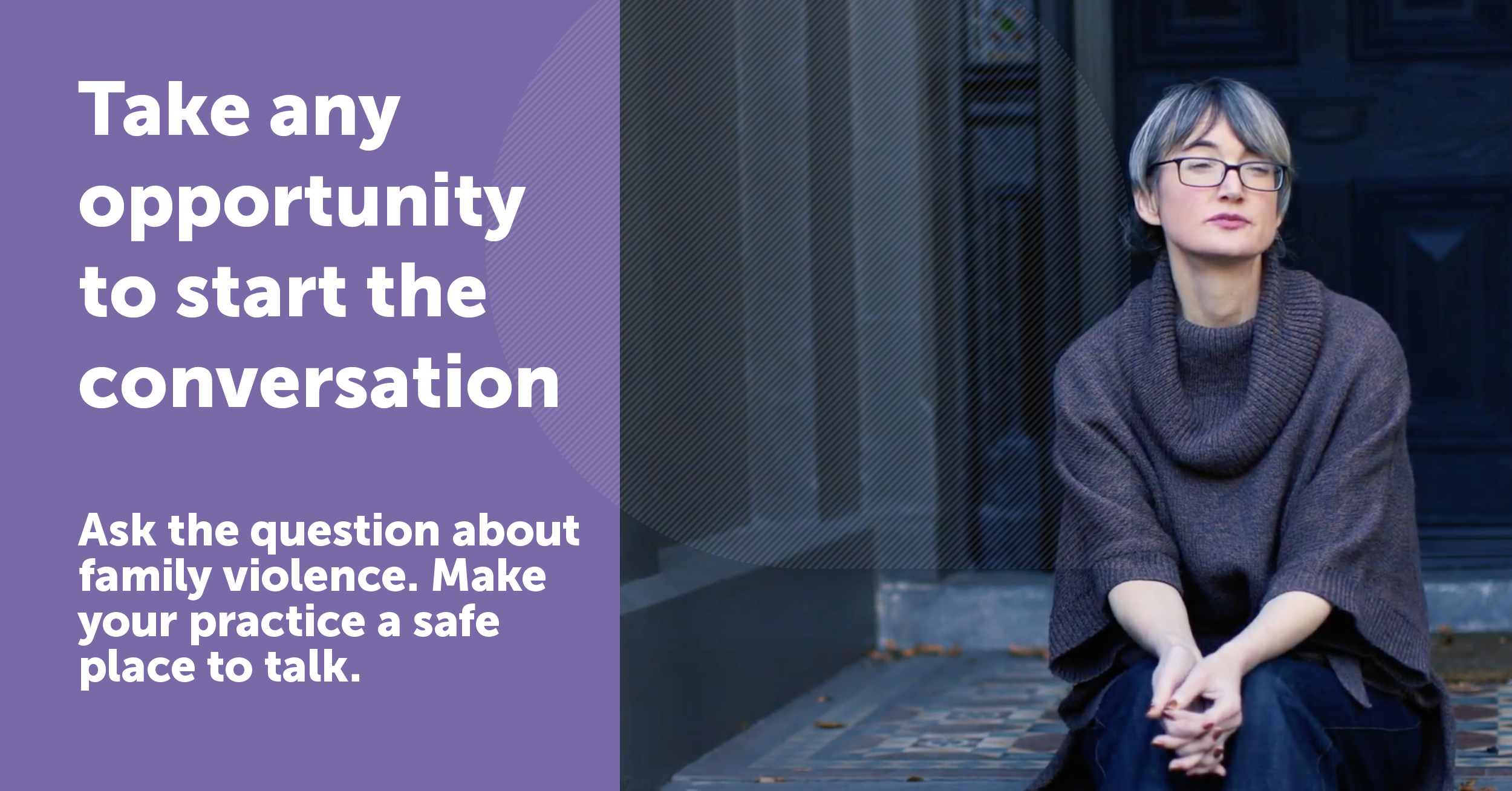
2 new quality improvement (QI) activity templates are available to support general practices to respond to the ‘shadow pandemic’ of family violence.
The QI activities are:
- Identifying people at risk of or experiencing family violence
- Increase the confidence of your practice team to identify and respond to family violence
These self-directed templates make it quick and easy for you to drive and record sustainable improvements in your practice.
Family violence presentations in general practice
Family violence is the leading contributor of ill health for women under 50. According to Professor Kelsey Hegarty, GPs may be seeing up to 5 women per week who have experienced underlying partner violence, one or 2 of whom will have experienced severe abuse.
General practitioners and other primary health services are well placed to be able to respond to family violence as they see victim-survivors, perpetrators, children and intergenerational groups. Studies indicate that women are twice as likely to disclose family violence if asked by their GP.
How we’re supporting the general practice response
North Western Melbourne Primary Health Network (NWMPHN) is one of 6 PHNs leading a Commonwealth-funded initiative to sustainably build the capacity of general practice to recognise, respond to and refer patients who are at risk of or experiencing family violence. This initiative includes our family violence QI project with the Safer Families Centre, which 146 general practice team members have participated in so far. The project also aims to improve collaboration across a range of local health, social care and family violence services, so patients can receive the right support, at the right time.
This approach is making a difference for patients across the NWMPHN region, as explained by a participating GP:
“We had a patient present extremely agitated and distressed. She was wanting a referral for a psychologist and to discuss some medications for anxiety. On further questioning she disclosed that she was in a physically abusive relationship and that her partner had severe alcohol abuse problems.
“I listened to her concerns, and she stated that she had already reported the physical abuse to police and was safe and had family support. However, she also was very worried about her partner and wanting to support him from a distance. She said she would like to see if he would like an appointment to discuss any options open to himself.
“[The patient] was referred to a psychologist and internally to the alcohol and other drugs support counsellors for support as an affected family member. Her partner saw me separately… he was [given the option] to see someone else to avoid any conflict… but was firm he wanted to see me. He has done very well, he is now taking medication for his mood, has been linked in with his own psychologist and has alcohol and other drug counselling and is taking medication to treat his addiction.
“There have been no further cases of violence or abuse towards his partner, and whilst they are not living together, she feels supported and her anxiety is now well under control. His mood is much improved, he has stopped drinking and is reconnecting with his family and slowly with his partner in a way she feels safe.
“It was very helpful to be able to so easily refer to alcohol and other drug counselling support and advice for them both.”
Irina Basanko, who is leading NWMPHN’s family violence work, said that education is tailored to meet the needs and demographics of each practice.
“This provides an opportunity for individual clinicians and whole practice teams to reflect on important health issues, identify gaps and areas for improvement.”
While NWMPHN’s family violence QI project is now at capacity, these new self-directed QI activity templates give all practices in the region an opportunity to find and support people at risk of or experiencing family violence.
Visit nwmphn.org.au/qi-activities to download these and other QI templates.




